When you’re just beginning your freelance journey, there are LOTS of questions. Things that were once taken care of for you are suddenly your responsibility. Some of those tasks are not so fun (like paying self-employment taxes four times a year).
But there are a number of perks: You get to name your own rates, determine who you take on as clients, and generally call the shots in your business.
As you start out, you’re probably craving a bit of direction from people who’ve been where you are. Well, we’ve got you covered. We asked #FreelanceTwitter for their advice for new freelancers: what to focus on, how to position yourself for success, and more.
Here’s a mash-up of the top tips we heard from the pros.
Tip #1: Plan ahead.
Quitting your job and jumping into freelancing may sound tempting—especially if you’re on the brink of utter burnout—but if you have the means to slow down and take it one step at a time, do. Build in a financial buffer so you can cover your expenses during any early slow months. Having an emergency fund allows you to gradually establish your business foundation. Create your LLC and register an EIN in advance of taking on new clients. You’ll look more professional and you’ll protect your personal finances from any liability (knock on wood). And start building your network while you’re still employed so you have a community to tap into for leads once you’re ready to jam.

![]()
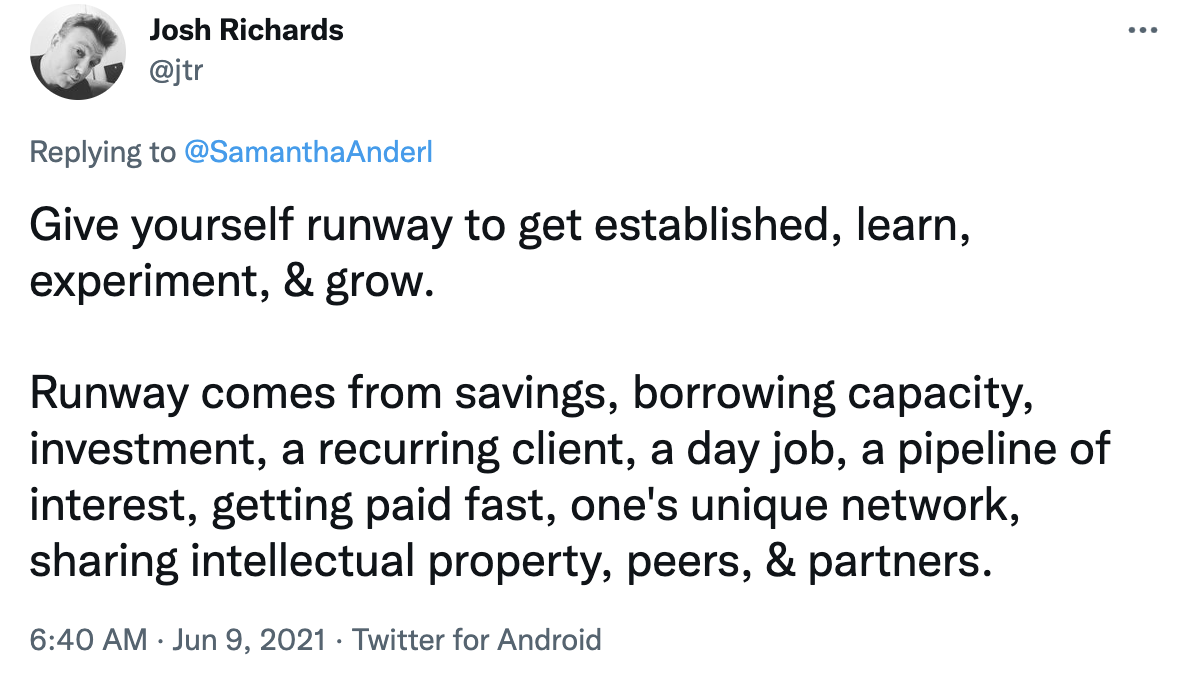
![]()
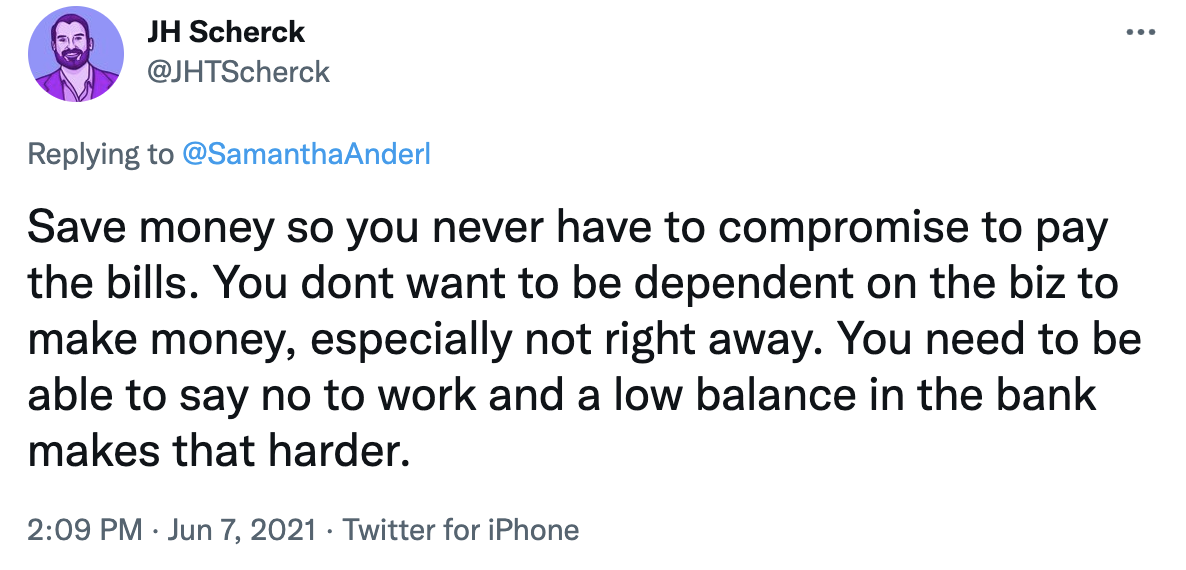
Tip #2: Find your specialty and niche down.
You might be inclined to cast a wide net at the beginning, thinking it’ll land you more clients. But for the most part, the more specialized your services, the better. If you tick specific boxes for potential clients who are looking for someone with your particular expertise, they’re much more likely to want to do business with you. So, we (and almost all of freelance twitter) suggest finding your thing and going for it.

![]()

Tip #3: Make yourself visible.
This doesn’t have to be a massive, multi-channel marketing strategy. It can be as simple as clearly outlining your services and then determining which channels you’ll use to promote them. Do you have a strong community? Reach out and ask for referrals. Are you good at social media? Build out your profiles and start posting. You can expand your self marketing strategy once you’re making income and you have the time to widen your focus. For now, hone in on the channels that can help you land your first client as seamlessly as possible.
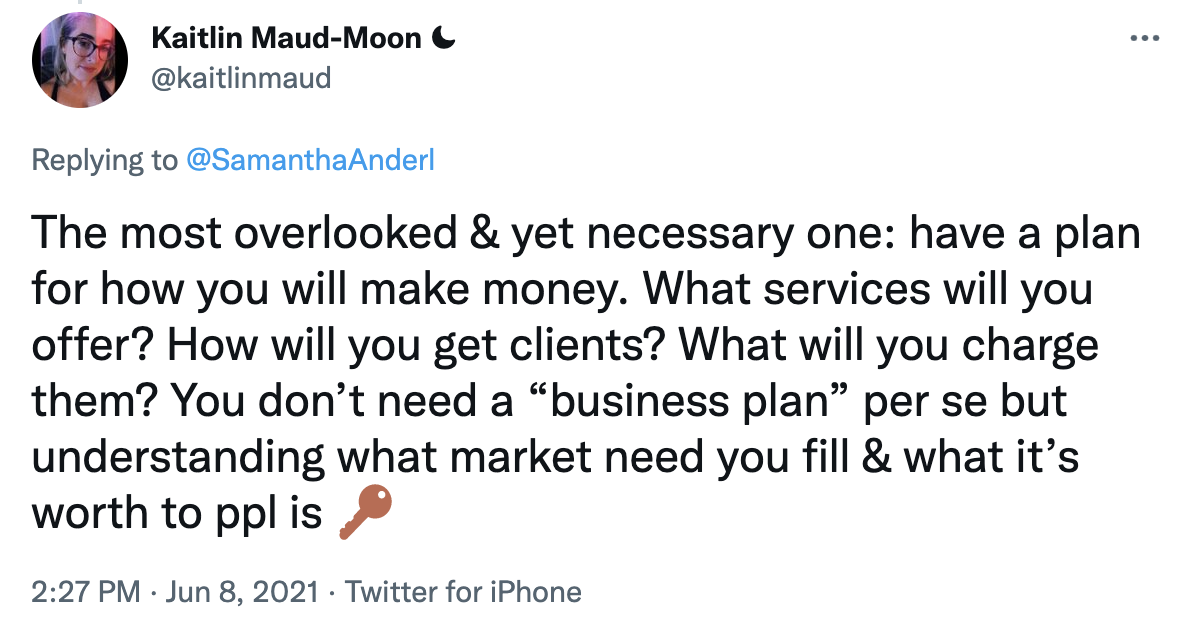
![]()
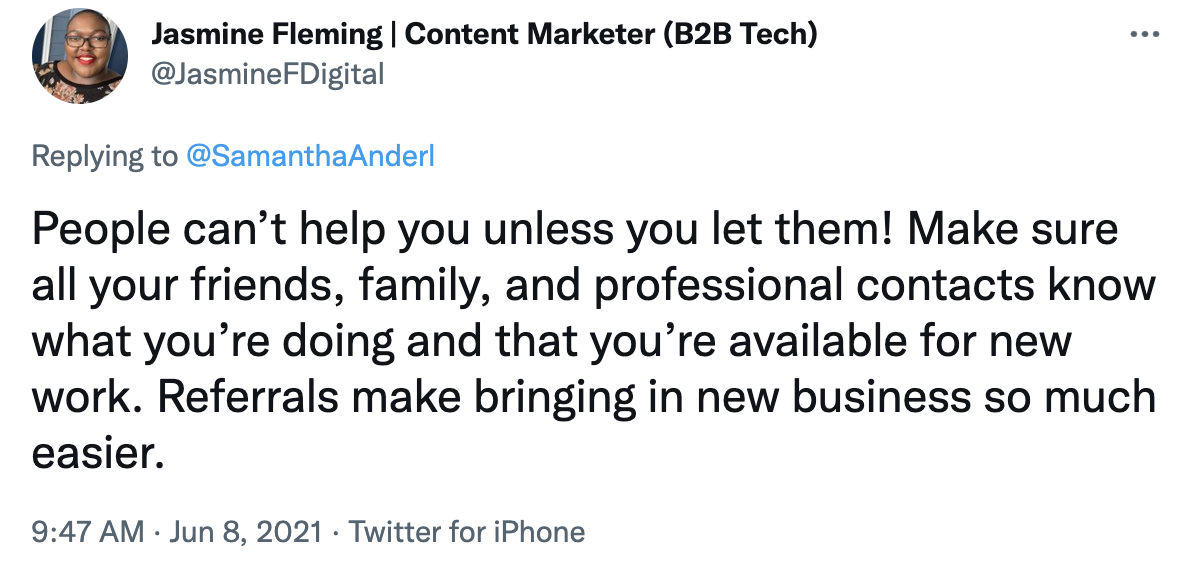
Tip #4: Stick to your word–deliver on time.
This one is important. They all are, but let’s put an asterisk here. Once you’re working for yourself, time management may become more challenging. When you’re working for yourself, you’re also your own boss. For some people, making the transition is easy. But for most of us, it’s tough to maintain boundaries and stick to the schedules we set for ourselves. So as you’re making promises to your clients about when and what you’re going to deliver, be sure you’re taking time to double-check that you’re setting realistic expectations. If you find yourself falling behind on the reg, it might be time to extend your deadlines or find a better time management system.
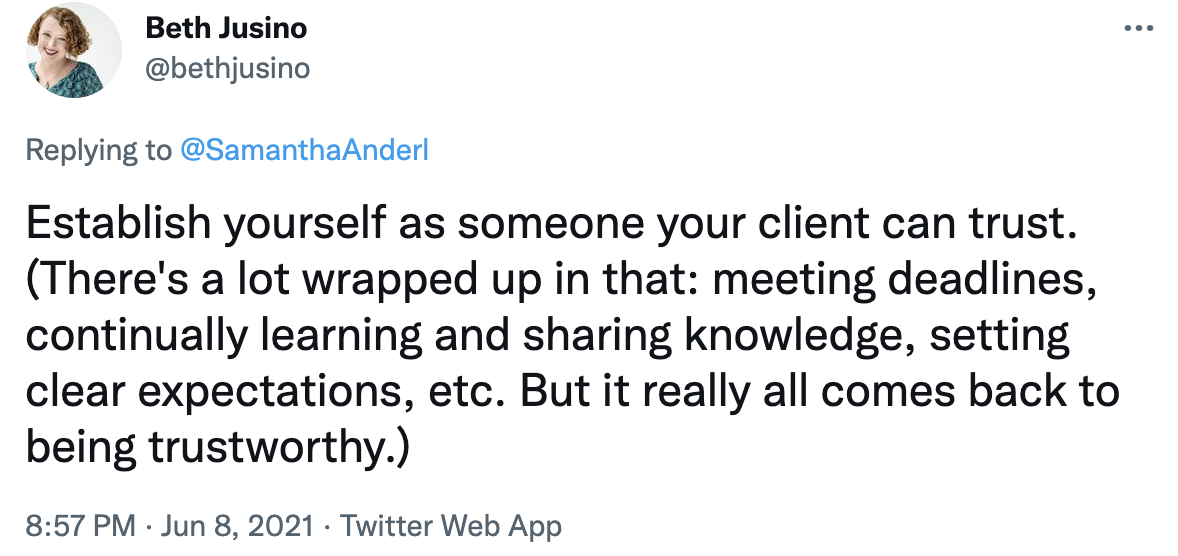
![]()
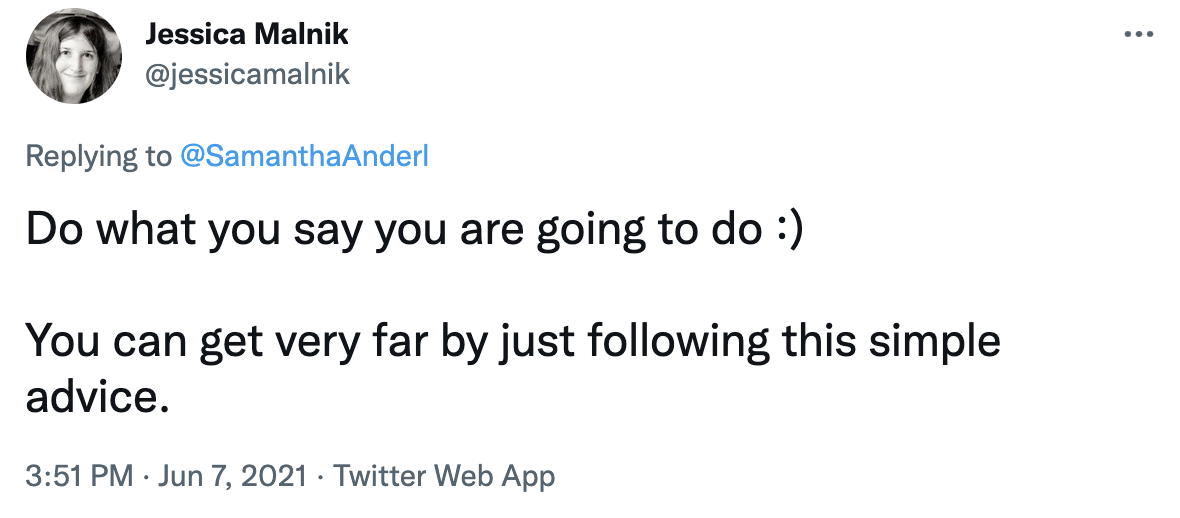
Tip #5: Find your people.
Community is all the more essential when you’re working for yourself. Freelancing life can be lonely if you don’t have a strong support system. That’s why there are so many freelance communities cropping up to help people find the camaraderie and connection that we miss out on from not being in a standard workplace.

![]()
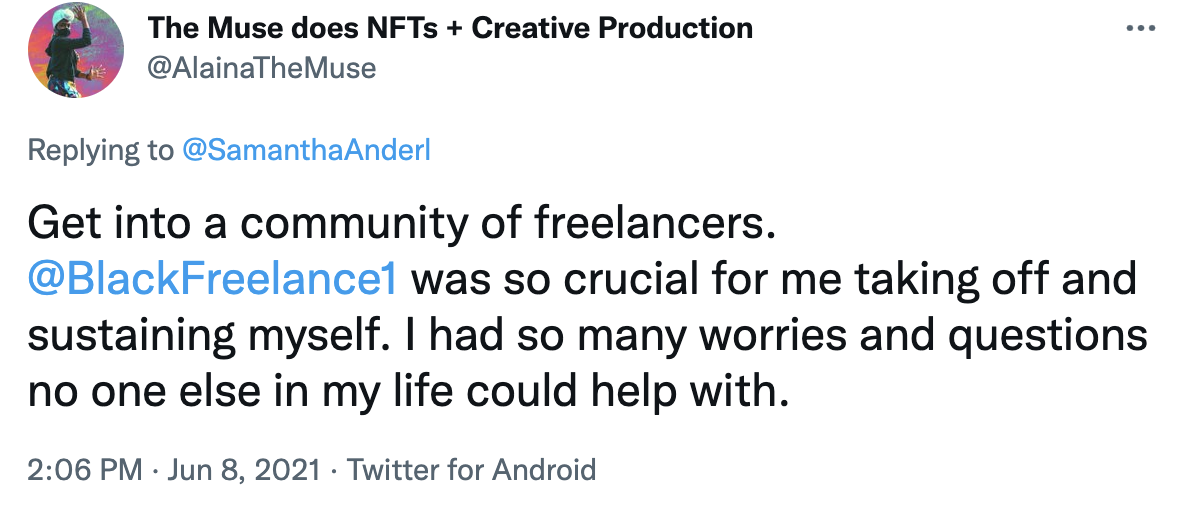
![]()

Tip #6: Seek out a mentor.
Freelancing is one of those things that gets easier and easier with time. You accumulate so much knowledge and wisdom that managing your business becomes intuitive. But most of us don’t want to wait years to feel fluent in our work. So tapping on experts who are well into their freelance career is a great way to accelerate the process a bit. Finding a freelance mentor can make all the difference in your early days. If there’s someone you admire who’s experiencing success in their career, try setting up a call and asking for their input.
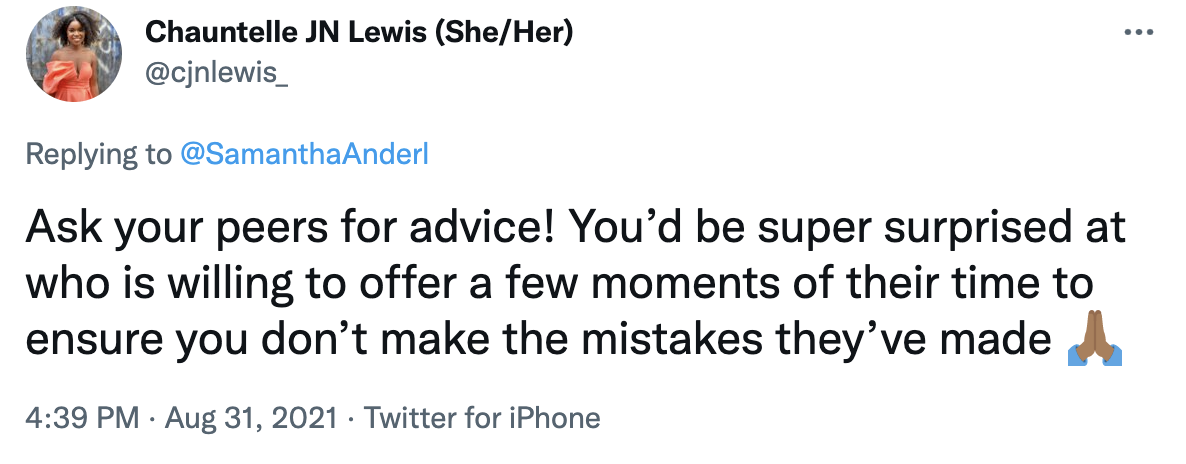
![]()
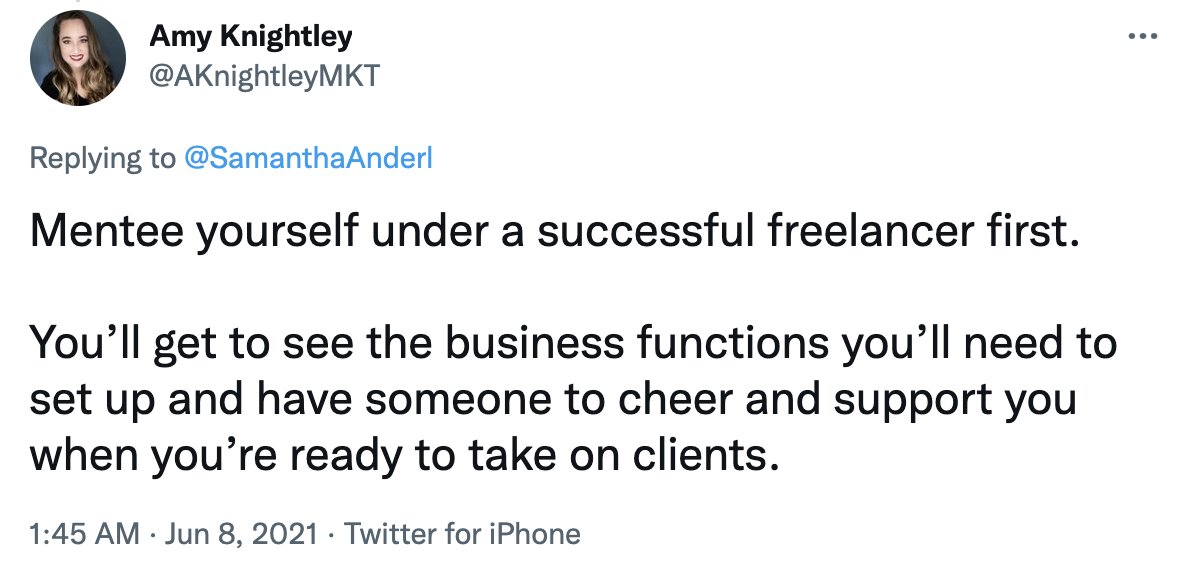
Tip #7: Sell your value.
It’s easy to get stuck on the services you provide and diminish the actual value you offer. But the second part is what your clients really want to hear. How are you going to add value? How are you going to make their lives easier? What expertise do you bring to the table that they’re lacking? What kind of growth can they expect from working with you? Be sure to not sell yourself short by naming your abilities without advocating for your value. Remember that your unique background is a selling point. It’s just a matter of how you package it.

![]()
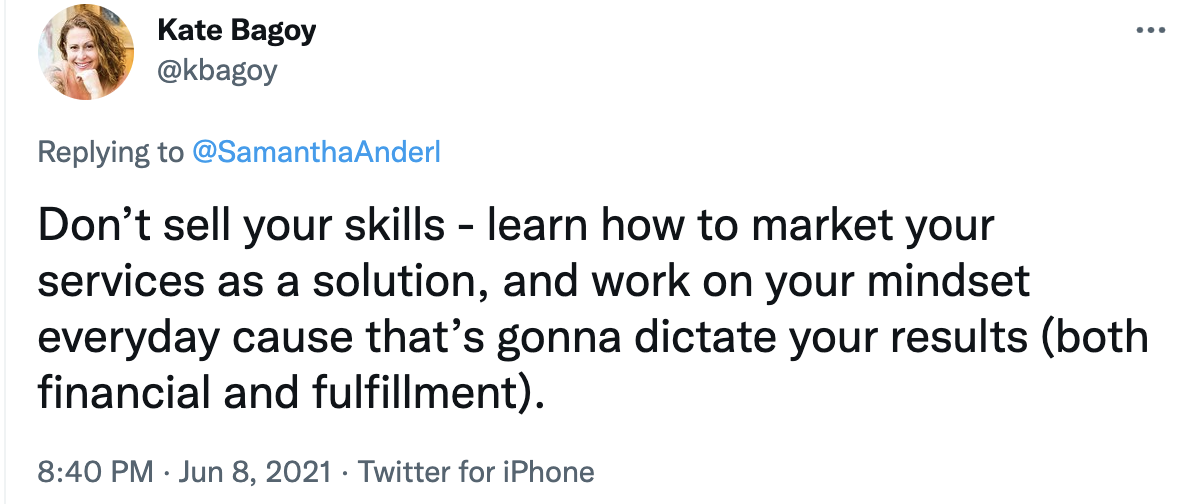
![]()
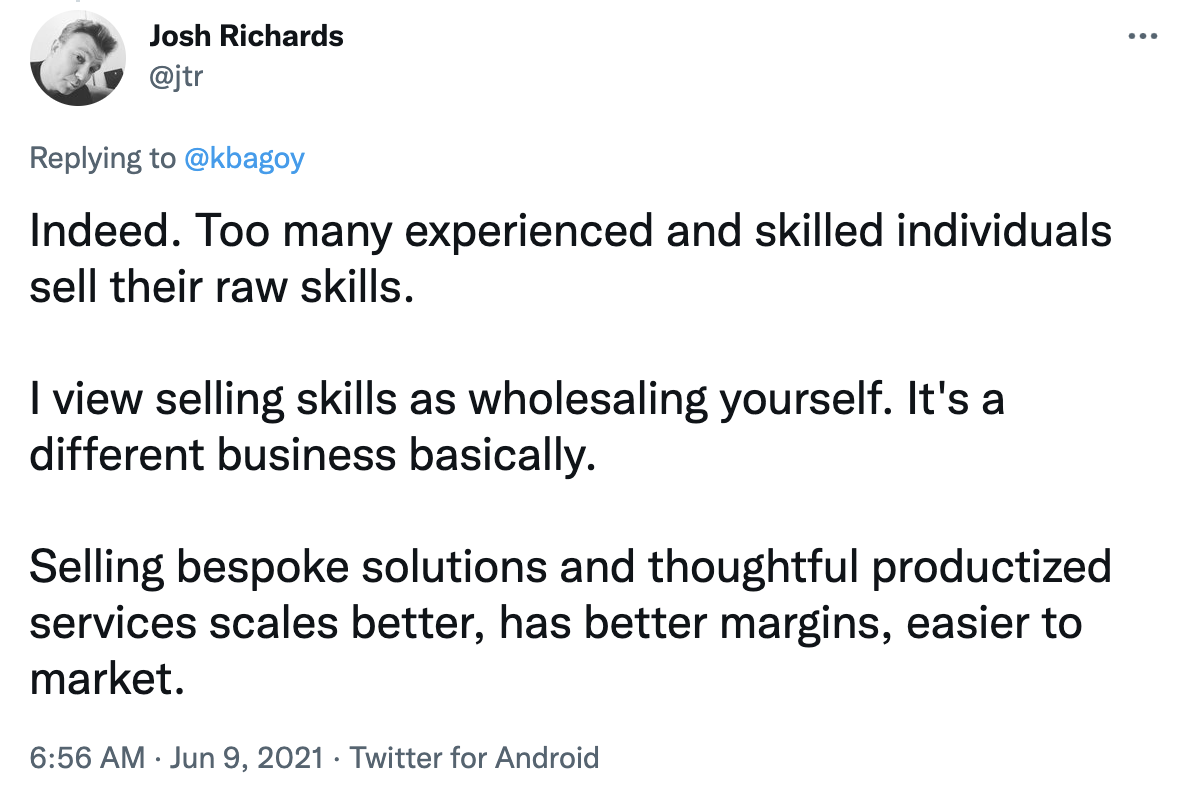
Tip #8: Know your worth (and never work for free).
Read that again. The word “free” may be in your job title, but it’s not in the description. You don’t have to offer any services for free. That includes—especially—working for free for people you have personal relationships with. It’s tempting, and it’s common for the people we know to ask for favors. You also don’t have to offer discounts. Once you name your rate, don’t feel like you ever need to negotiate. If you and a potential client aren’t aligned on rate and overall value, it might not be the right fit. Your work is worth your rate, remember that.

![]()

Tip #9: Always have a contract in place.
Contracts are the backbone of a business relationship. They establish your boundaries, protect you from legal action, and ensure you get paid. You can refer back to your contract if questions arise with a client about what you can and cannot do for them. And throughout your relationship, you can tweak and re-sign a contract if needed to make sure you’re always supported.

![]()

![]()
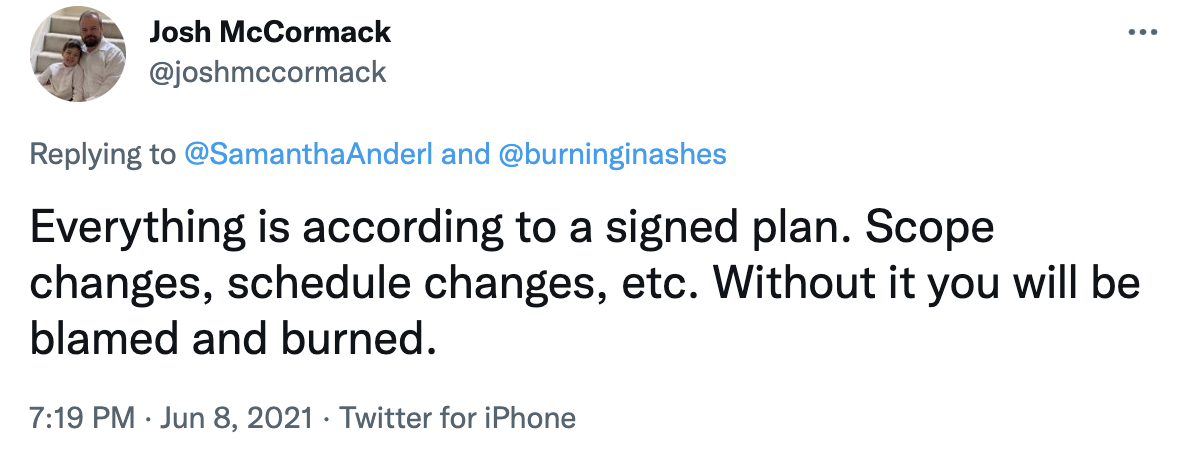
We’re constantly learning from the people who’ve come before us, and we encourage you to do the same, especially early on in your freelance journey. Follow the freelancers above on Twitter. They’ve been there. They know what’s up. And #FreelanceTwitter is a gracious community that wants to help other people succeed.
At Harlow, we want to help too! We’re all about encouraging freelancers to live their best lives. In addition to building freelance software to help you keep track of your clients and manage your day-to-day, we’re constantly publishing new resources and chatting about freelancing on Twitter and Instagram. Follow along to stay in touch. We’re here for you. You’ve got this.




